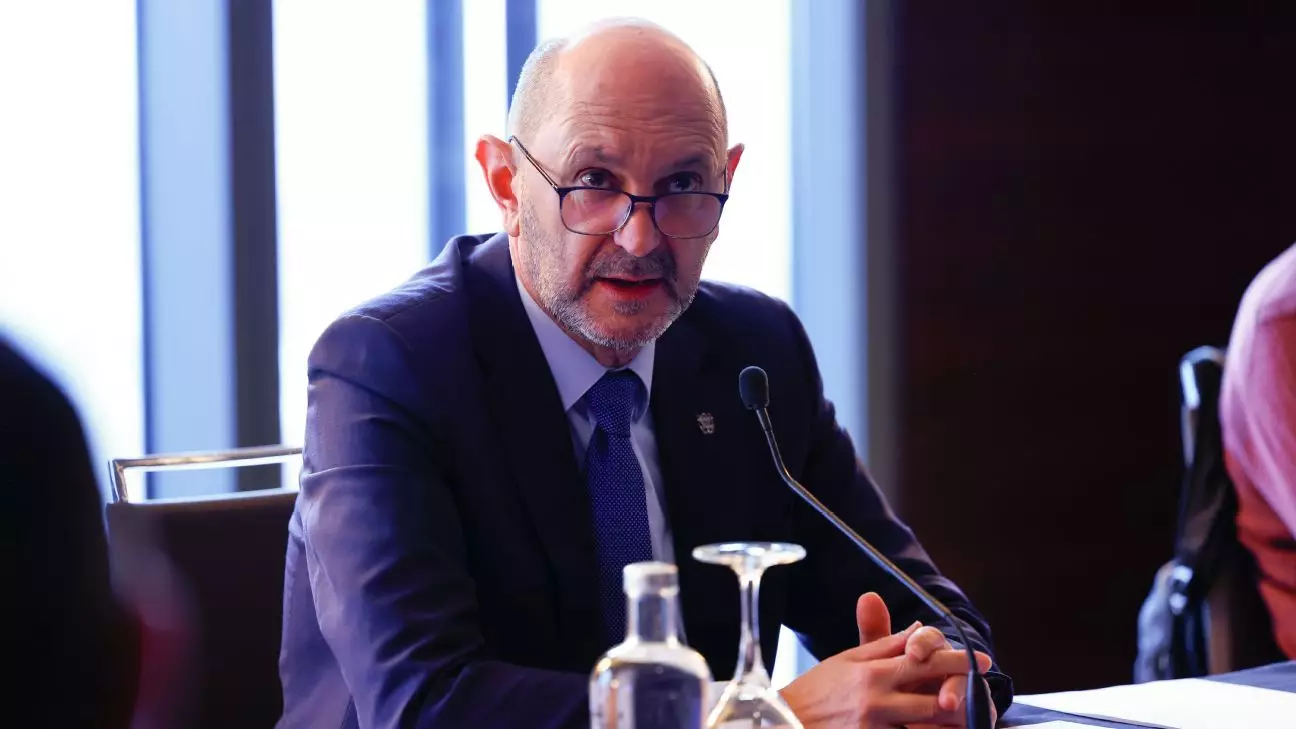The Royal Spanish Football Federation (RFEF) is stepping into uncharted waters with the election of Rafael Louzan as its new president. Chosen on a historic Monday, Louzan’s ascension to the presidency coincides with a pivotal moment for Spanish football. Just days prior to his election, FIFA announced that Spain, alongside Morocco and Portugal, will co-host the prestigious 2030 World Cup, a move that adds layers of significance and expectation to his new role.
At 57 years old, Louzan comes equipped with previous experience in the executive committee of the RFEF since December 2019, alongside his representation of the Galician Football Federation. His victory over competitor Salvador Gomar positions him to steer the RFEF through a critical transitional phase that demands strong leadership and vision.
Louzan’s election is not devoid of controversy. Unsettling shadows loom over his presidency due to a seven-year ban handed down by a provincial court, stemming from allegations of misconduct during his time as president of the Pontevedra Provincial Council. This ban raises questions about his suitability for such a high-profile role, but Louzan is actively appealing the verdict in Spain’s supreme court. The implications of his legal challenges could fundamentally reshape the dynamics within the RFEF as he assumes leadership.
The internal climate of the RFEF has been strained, particularly following the fall from grace of former president Luis Rubiales. His unsolicited kiss on player Jenni Hermoso during the Women’s World Cup celebration in August 2023 ignited a firestorm of controversy, culminating in his resignation and future trial. This incident has highlighted the pressing need for a moral and ethical renaissance within the organization, a task that Louzan must prioritize if he hopes to restore faith among players, fans, and stakeholders.
The RFEF’s tumultuous backdrop is exacerbated by additional turbulence marked by the suspension of Louzan’s predecessor, Pedro Rocha. The two-year suspension from Spain’s Sports Council (CSD) for serious infractions has led to governmental intervention. A special committee has been instituted to oversee the federation, signaling the severity of the crisis. Such oversight is indicative of the governmental concern regarding the management of football in Spain, reflecting an urgent need for reform.
Further complicating matters, FIFA has issued warnings regarding the impending election of an RFEF president, stipulating a deadline to mitigate the risk of losing Spain’s rights to host matches in the upcoming World Cup. It underscores an unmistakable pressure for Louzan to act decisively and establish a trustworthy administration capable of navigating both the internal and external expectations.
As Rafael Louzan assumes office, the road ahead is fraught with challenges that extend beyond administrative duties. It requires concerted efforts to address both the reputational damage from high-profile scandals and the complexities of upcoming sporting events. His ability to unify factions within Spanish football, tackle corruption, and rebuild trust will be critical. The unfolding narrative of Louzan’s presidency will surely shape the future of the RFEF and Spanish football on the global stage.

